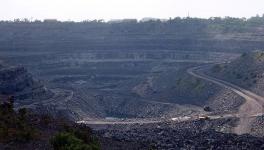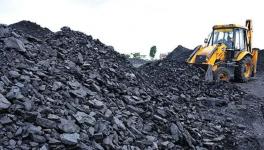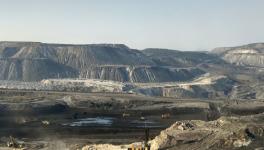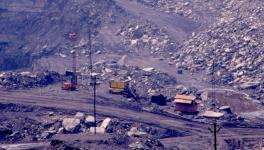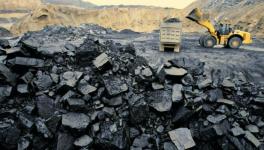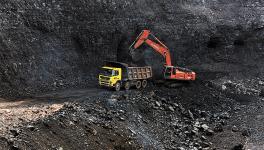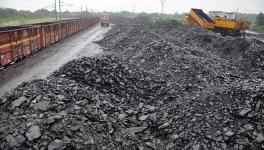Commercialisation of Coal Blocks: Unions, Federations Call for 3-Day Strike in July
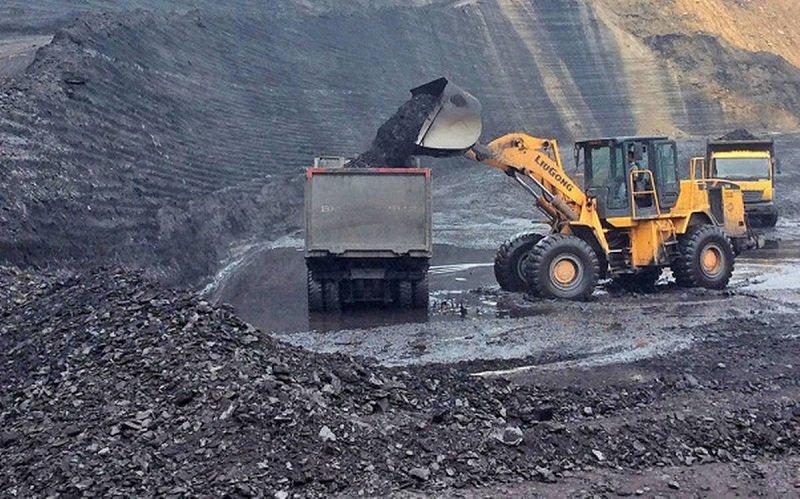
New Delhi: Trade unions and federations in the coal sector have called for a three-day strike on July 2, 3, and 4 against the Union government’s decision to auction 41 coal blocks for commercial mining. The strike notice was served to managements on June 18, the day the government initiated the auction.
The coal unions have raised five demands, which include withdrawal of the decision of commercial coal mining , stopping all step to privatisate Coal India Limited (CIL) and Singareni Collieries Company Limited (SCCL), withdrawal of the decision to de-link Central Mine Planning & Design Institute Limited (CMPDIL) from CIL, and enforcement of enhanced wages for contractual workers in CIL and SCCL.
The central trade unions have extended their support to the strike. A statement released on June 19 by 10 central trade unions—Indian National Trade Union Congress (INTUC), All India Trade Union Congress (AITUC), Hind Mazdoor Sabha (HMS), Centre of Indian Trade Unions (CITU), All India United Trade Union Centre (AIUTUC), Trade Union Coordination Centre (TUCC), Self Employed Women’s Association (SEWA), All India Central Council of Trade Unions (AICCTU), Labour Progressive Federation (LPF), United Trade Union Congress (UTUC)—said the government initiated the auction without paying any heed to the protests organised by the coal unions and federations on June 10 and 11, hence the unions have chosen to go on a three-day strike.
Opposing the government’s move, CITU said in a statement on June 18, that allowing commercial mining of coal by private players including foreign entities “is linked with the government’s decision to allow 100% FDI in the coal sector. Such retrograde decisions are aimed at completely reversing the nationalisation of coal mining in national interest in the 1970s to ensure energy security of the country.” The statement added. “This will also pave the way for ultimate privatisation of the public sector coal industry.”
Protests in Jharkhand
Out of the 41 coal blocks that are being auctioned, 20 are located in Jharkhand.
The Jharkhand Jan Adhikar Mahasabha, a platform of social activists and 30 progressive organisations that works to facilitate efforts to defend people’s rights, has also called for mass protests against this decision.
In a statement, the Mahasabha said: “It again exposes the crony capitalism of the government. Ironically, the move, touted as an atmanirbhar initiative, takes away all ownership rights of the land owners and Gram Sabhas and opens up natural resources for more corporate plunder.”
The organisation also expressed concern over the fact that the Jharkhand government had extended its support to the Central government’s decision. In a letter dated June 10, addressed to Prahlad Joshi, the minister in charge of Mines and Coals, Jharkhand Chief Minister Hemant Soren said: “The decision of Government of India to open up India’s coal sector to commercial mining is indeed a very historic and bold step. It has a lot of significance for a state like Jharkhand which is blessed with a very rich mineral wealth. Despite very attractive policies we have not been able to attract investments worthy of our mineral endowments.”
Soren’s letter added, “It will be in the larger interest of the people of this state if the new policy is able to attract the best foreign and domestic investors who are known to practice scientific mining through latest technological tools.” He also expressed concern that due to the ongoing pandemic, many domestic and foreign investors may not be able to participate in the auction process.
Reacting to Soren’s letter, the Jharkhand Jan Adhikar Mahasabha said: “The gatbandhan coalition of JMM, Congress and RJD was given a decisive mandate against the anti-people and pro-corporate policies of the earlier Raghuvar Das government. It is expected that the state government will stand with the people in their fight against forceful acquisition of their land or mining on their land without their consent.”
The statement pointed out that this decision also violated several legislations and constitutional provisions that aim to protect the poor and marginalised and the right of the adivasis.
“ESA and 5th schedule provisions clearly define the role of Gram Sabhas as primary decision-making body of a village. The Samata judgement allows Adivasis and their cooperatives the right to undertake mining in their land, if they so wish. Further, the Lodha bench of Supreme Court in its landmark judgement of 2013 clearly said that ownership of minerals should be vested with the land owners,” the statement read.
The organisation has given a call to all Gram Sabhas in the affected areas to protest against the Narendra Modi government’s decision and not allow mining activities to start.
“We demand that the state government should take a firm stand against commercial mining and centre’s decision to auction coal blocks, implement the laws and legislations that protect people’s rights to natural resources and self-govern, in letter and spirit, and present an alternative non-exploitative vision to the country,” it said.
Jharkhand Govt Moves SC
On Saturday, the Jharkhand government moved the Supreme Court, challenging the auctioning process on the ground that the ongoing pandemic could subdue the legitimate market price, according to a LiveLaw report. The petition also said that this would devastate the indigenous tribal population and lead to exploitation of coal mining activities.
The petition also states that the “hasty”auctioning process “cannot be legally valid as Mineral Laws (Amendment) Act, 2020, creates a “legal vacuum” due to its lapse on Ma14, 2020,” says the LiveLaw report.
Get the latest reports & analysis with people's perspective on Protests, movements & deep analytical videos, discussions of the current affairs in your Telegram app. Subscribe to NewsClick's Telegram channel & get Real-Time updates on stories, as they get published on our website.









